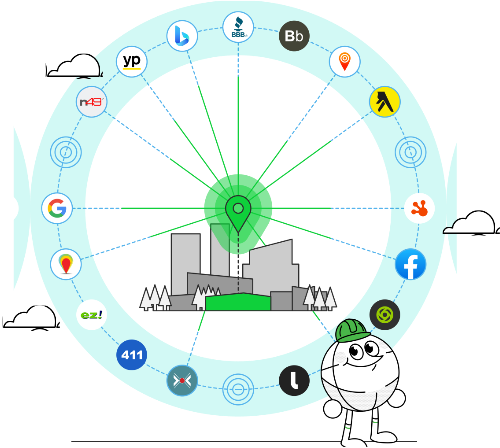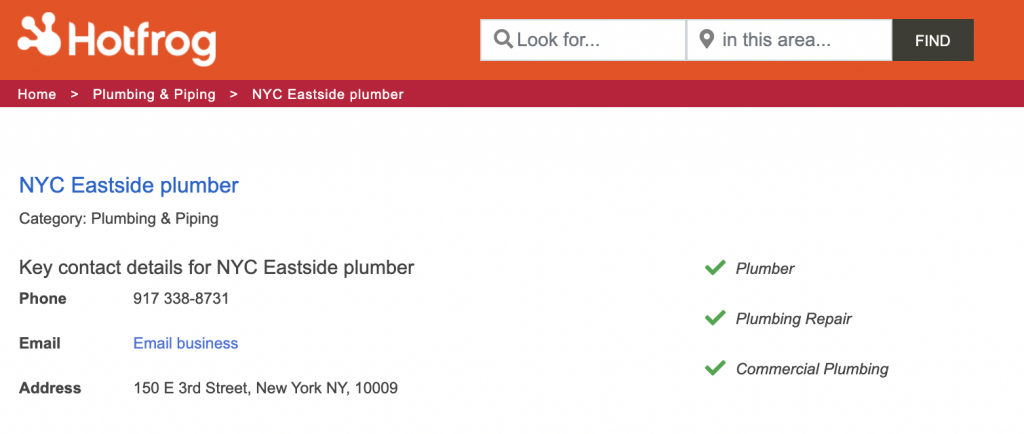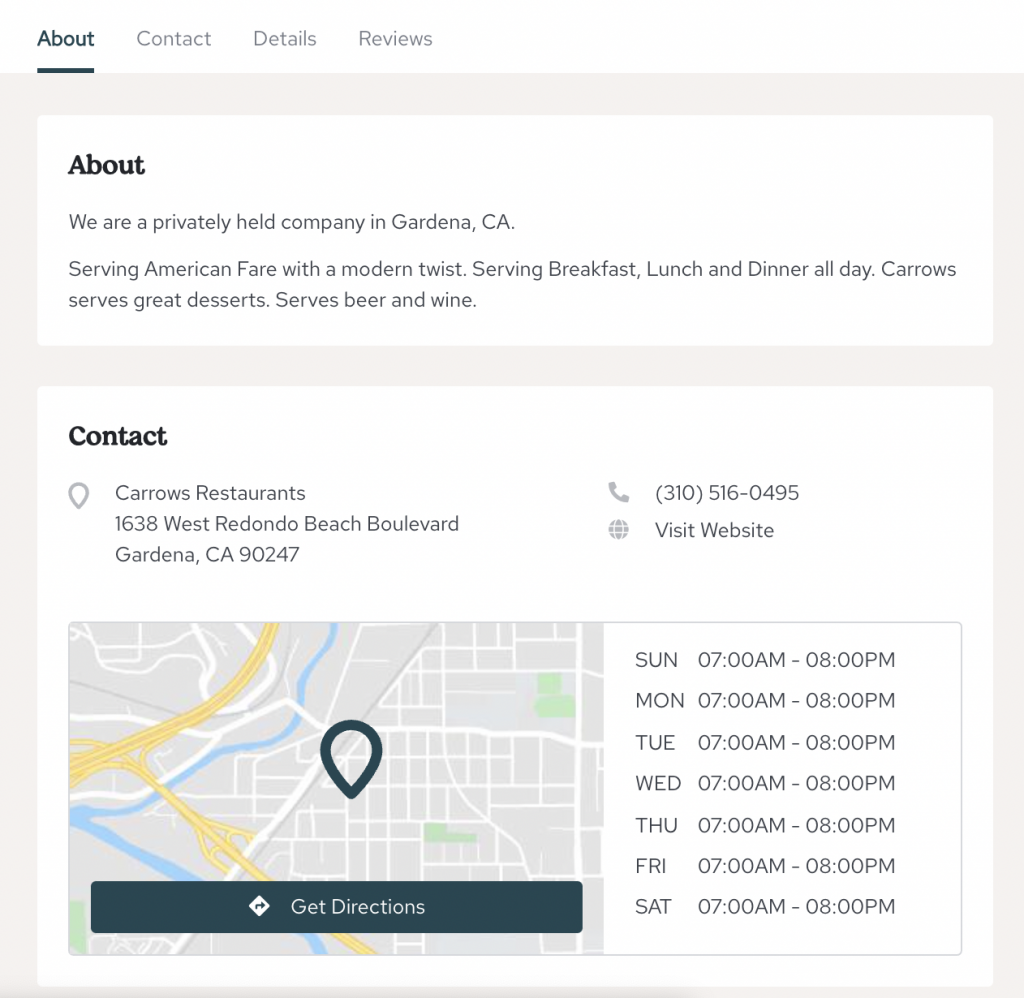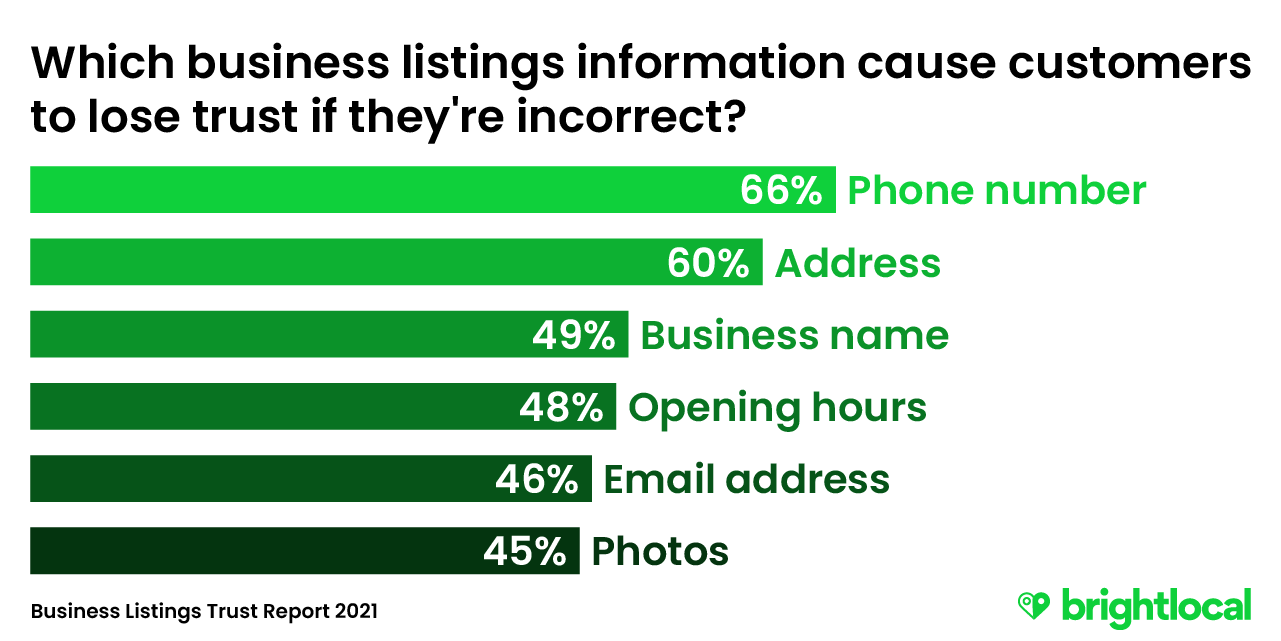
What Are Local Citations?
The creation and management of local citations, often with a local citation service, is foundational to a comprehensive local SEO strategy.
If you’re a business owner who isn’t currently harnessing the power of citations, then you’ll want to learn more about these simple SEO-boosting assets.
What are local citations?
Local citations are listings of a business’s information online. As a local business owner, building these citations should be one of the starting points for expanding your visibility and authority online.

Get Citations Done Fast... and Own Your Listings Forever
No recurring fees. Complete Control. Super-low cost.
The information included in a local citation is primarily the business name, address, and phone number—also known as NAP data. A link to your website can also often be included, and this link naturally has SEO benefits.
Adding your business information to directories and other third-party websites will help consumers to find your business online. Doing so also serves to boost how authoritative and trustworthy Google considers your business to be—more on this later!
Below you can see a typical example of a local citation.

What are the different types of local citations?
There are two different types of local citations—structured and unstructured.
What are structured citations?
Structured citations are the most common type of local citation. They’re the listings of your business on relevant business directories and third-party websites. These websites are huge, pre-existing databases of business information that Google already trusts.
When it comes to structured citations, being listed on the directories that are most relevant to your industry is key. On the more general directories and other sites, choosing the most appropriate category for your business is essential. This helps Google to understand your products or services and helps the right customers find you.
What are unstructured citations?
Unstructured citations are mentions of key business data on a page, but where the information isn’t grouped together. This is likely to happen if your business is mentioned in an online news article or a blog post, such as the example below from Westgate Resorts.

As you can see, the name of the bar is referenced throughout the text, with the address and phone number appearing at the end.
Although unstructured citations aren’t as immediately obvious to search engines as the structured variety, they are valuable to local SEO.
The value of unstructured citations is influenced by three factors:
- Location;
- industry relevance; and
- website authority.
Location
If your business is mentioned on a website that is connected to your local area, then this is likely to be more valuable than a mention on a website with no local connection.
This is true of both the potential SEO value and also the potential for local residents to discover your business from this mention.
Industry Relevance
Appearing on websites that are related to your industry or niche is helpful from an SEO perspective. This also helps to put your message in front of interested people.
For example, if you run a bakery, and a nearby café talks about your goods on its website, this could be more valuable than being referenced on a textile company’s website.
Website Authority
Website authority—or domain authority—is important to consider when determining the value of unstructured citations.
If the website the citation appears on has a high domain authority, then this citation will likely be more valuable to you than one from a website with low domain authority. This is because domain authority is a recognized signifier of a website’s rankability in the eyes of Google.
Related: Free Video Course – How to Clean Up and Manage Local Business Listings
What are the core components of local citations?
NAP information is always the core component of local citations.
Local SEO citations might also feature:
- company website;
- opening hours;
- business description/category;
- driving directions;
- images;
- links to social media profiles; and
- email address.
There may also be additional features, depending on the site in question.
For example, Manta (as seen below) allows businesses to feature NAP citations data, an ‘About’ section, website link, map directions, and opening hours. The site also offers separate tabs within the listing for additional contact information, details, and reviews.

Links and Citations: Similarities and Differences
Citations and links are powerful signals that influence both local and organic search rankings.
However it’s not uncommon for people to confuse the meaning and importance of links and citations. It’s important to recognize the difference between them, though, because to maximize your site’s visibility for localized keywords you need to build both of them. Focusing on one at the expense of the other means that at best you won’t be as visible online as you could be, but at worst you won’t be visible at all (at least not on the 1st page of the search results).
Links and citations are similar in that…
- Both are online references to your business
- Typically these references appear on 3rd party sites (at least that’s how most SEOs think of them)
- They can exist on the same page at the same time
- Both have the potential to negatively affect your rankings if done incorrectly, and particularly if they go against Google Webmaster Guidelines
They’re different in that…
- A citation must include your Business Name, Address and Phone Number (NAP), but a link doesn’t have to
- A link must be clickable (i.e. clicking it must take the user to your site), whereas a citation doesn’t have to be
- All citations must be consistent, whereas links should be varied
- Links improve rankings for both the organic search results & local business search results, whereas citations only improve rankings in local results
What do links and citations look like?
Links and citations can take many forms depending on the site and context that they appear on. These are some examples of what both links and citations typically look like…
Links:
this is a link within a phrase
click here
example.com
http://www.example.com
Links can also be embedded within images and widgets.
Citations:
SEOmark, 34 Links Drive, Birmingham, West Midlands, B91 2DL (0330001152)
SEOmark
34 Links Drive
Birmingham
West Midlands
0330001152
SEOmark, 34 Links Drive, Birmingham, UK
SEOmark, located at 34 Links Drive in Birmingham, is run by Mark Walters. You can contact him at 0330001152.
Note: A full citation includes your complete NAP. A partial citation is one which includes only part of your NAP—maybe your name and phone number or name and address. A partial citation is better than nothing, but not as beneficial as a full citation.
Popular Local Citations Sites
There are many different directory sites that you can create listings on.
Some of the best platforms for local businesses to build citations are:
For more extensive lists of citation sites check out our resources:
- Best Business Directories
- Best US Business Directories
- Top Free US Business Directories
- Top Free International Business Directories
- Best Business Directories for Every Industry
What about sites like Google, Facebook, Apple Maps, and Yelp?
These are all technically places where local citations exist. However, as people are engaging with them far more regularly, they require much more management than standard citations sites, which is what we’re exploring here.
The high level of engagement these giant sites and services receive means that we refer to them instead as part of the ‘engagement layer’ of listings management. Citation sites, on the other hand, make up the ‘authority layer’, as accurate data on these sites helps boost authority with search engines.
Why are citations beneficial for local SEO?
Local citation building is beneficial for SEO because it helps Google—and other search engines—to trust the authenticity of your business and the accuracy of your information.
When Google can see that exactly the same information exists across a number of trusted websites, then this trust can be passed on to your business. NAP citation consistency is therefore particularly important for enjoying the maximum SEO benefit of local citations. This means that your business name, address, and phone number must be accurate across all of the websites on which your business is listed.
Although links are great, a local citation doesn’t need to link to your business website in order for it to have SEO advantages. Google will identify that your business has been mentioned through the presence of your NAP citations data, and this is enough to influence trust signals towards your brand.
What’s the problem with inaccurate business listings?
Inaccurate citations are problematic because they can cause a decrease in the level of trust Google has in your business. Conflicting information could be seen as misleading, and this can often come down to seemingly insignificant differences, such as spellings and abbreviations.
For example, if you use a shortened version of your business name on certain sites, but use the business name in full for other listings, then this may appear to be two separate businesses in the eyes of Google. This might mean that less authority is attributed to your website as a result.
Inaccurate business listings can also confuse and deter potential customers. If someone finds your business through a directory, but the contact details are incorrect, then they may struggle to communicate with you. This could cause them to shift their attention—and their money—to one of your competitors.
Did you know? 63% of consumers say that finding incorrect information would actively stop them from choosing your business. Our own research shows which inaccurate elements cause consumers the most frustration. Unsurprisingly name, address and phone number make up the top three:

Additionally, if your citations become outdated, such as due to a change in address, then it’s important to resolve this without delay. Accidentally directing potential customers to your old business location could cause frustration for them, and the loss of a sale for you.
What are the business benefits of building citations?
Getting listed on business directories and third-party websites is generally free, making it a cost-effective way to boost awareness of your brand.
When customers search on Google for specific services, business directories will often feature in the results. Therefore, having a presence on these sites can help to put your business in front of more consumers.
Additionally, a number of local business directory sites allow customers to leave reviews. Positive reviews can go a long way to bolstering your business reputation, so the more sites you can build these assets on, the better!
Ready to build citations?
Now that you understand the advantages of building local citations, you’ll want to get started right away.
Third-party listings management tools can help to streamline the process of building, tracking, and staying on top of your citations.
Need help building citations? Check out BrightLocal’s Citation Builder, which saves you hours and does the job for you!
Here are some guides to adding and claiming listings on popular citation sites: